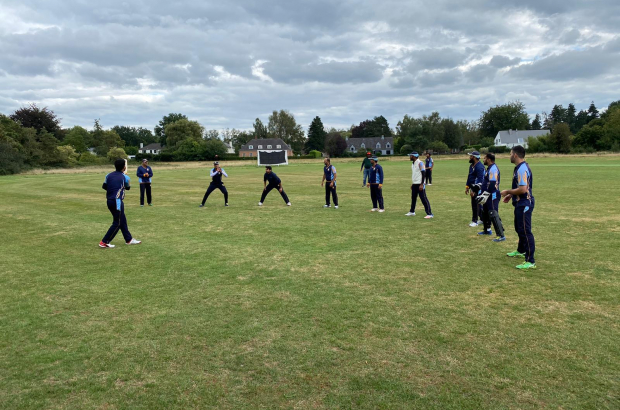- Daily & Weekly newsletters
- Buy & download The Bulletin
- Comment on our articles
Community life: The Royal Brussels Cricket Club boasts a long history and ever-evolving international membership
When was the Royal Brussels Cricket Club founded?
Kim Revill: Our club was established in 1866, but we believe that cricket was first played 30km outside Brussels by the Duke of Wellington’s foot soldiers days before the Battle of Waterloo in 1815.
Where did the club play before moving to its current grounds in Lasne?
Kim: It’s had an itinerant background playing all over Brussels: La Rasante, Bois de la Cambre, Woluwe-Saint-Pierre and the British School of Brussels, before settling in Lasne 40 years ago.
How did the two of you become involved in the club?
Chris Hutchins: I’ve been a member since 1997. I was one of many youngsters to come to Brussels to do a stage in the European Commission. I thought it would be good to play some cricket and I discovered this club. I’m extremely indebted to members who gave me lifts out to the ground as I was without a car and clue to where the ground was.
Kim: My son Max started playing for the club about six years ago. Cricket is Max’s life and the club is his second home. It’s been good for all of us as a family.
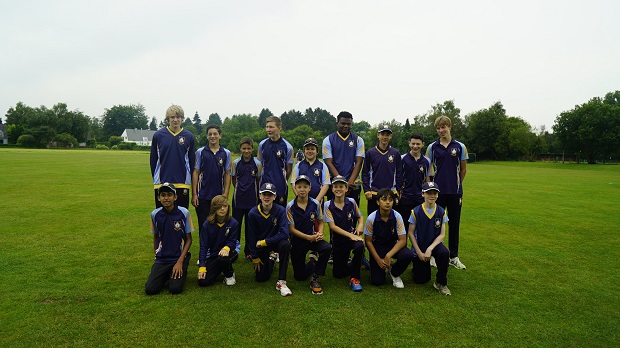
How many members and teams are there?
Chris: We’re enjoying something of a Covid benefit as so many families, players and members have been unable to travel over the last couple of summers. We’ve had a growing interest in the club by people wanting to get out to the countryside for some exercise, so at the moment the club is in very good health in terms of members. We have approximately 40 to 50 male playing members, more than 30 colts across the four age groups and around 20 members in the women’s section. We’re very proud to have fielded around 100 players a couple of weeks’ ago for a weekend of cricket across all the different sections. We’re also proud to have developed several players from the junior level all the way to the current Belgian national team. And our women members make up the majority of their national representative side.
How has the club been coping during the pandemic?
Chris: We obviously had to observe all the Belgian federal and regional rules. Our 2020-21 season was truncated as we didn’t start until mid-June. Cricket league fixtures were adapted so we had to play T20 games instead of the longer 50 over games. We also had a delayed start in 2021, but we have worked hard to observe all the protocols when we play and at the moment teams are not using the indoor clubhouse facilities.
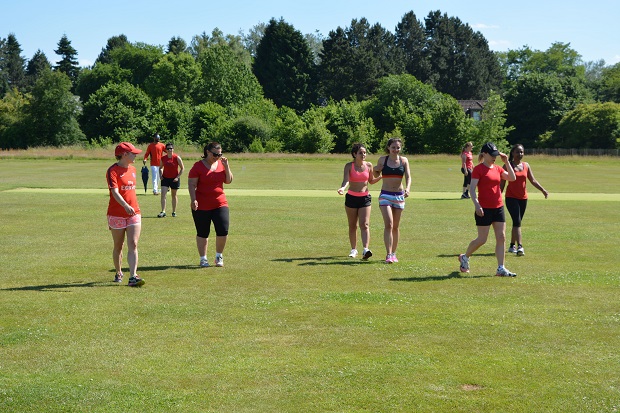
What is the league and competition structure in Belgium and do you play international matches?
Chris: The league structure in Belgium was set up in the mid-1990s by former RBCC chairman Ted Vorzanger. It’s developed over time from one league of eight teams to around 30 teams divided over five leagues. Cricket is played all over the country and that’s very encouraging; there’s an almost regular set of fixtures for men, women and colts. RBCC is the oldest member of the Belgian Cricket Federation (BCF). It’s fair to say that cricket is changing; the shorter game format of 20 overs is now more popular than the full 50 overs, but we believe in playing both.
Belgium is not a traditional cricket playing country, but is that changing?
Chris: We’ve noticed a shifting interest in the game. I remember that in the 1990s, cricket was still televised live on the BBC. There was a strong interest in the game by Belgians. That tailed off a bit as cricket went behind a paywall but with the advent of the 100, which is televised and available in Belgium, we’re hopeful that more Belgians will become interested. We work hard to promote the game locally, and are planning a community day on 26 September with the commune of Lasne. But it’s fair to say that today it’s largely a game for expats and naturalised Belgians.
Is there a social side of the club for families?
Kim: Very much so and it’s become an extended family for many of us. People are keen to become involved and we all take turns to clean, look after the kitchen and the bar or do the scoring. There’s a family atmosphere at the club now. We also have lads and dads social matches (mums invited too), followed by family barbecues.
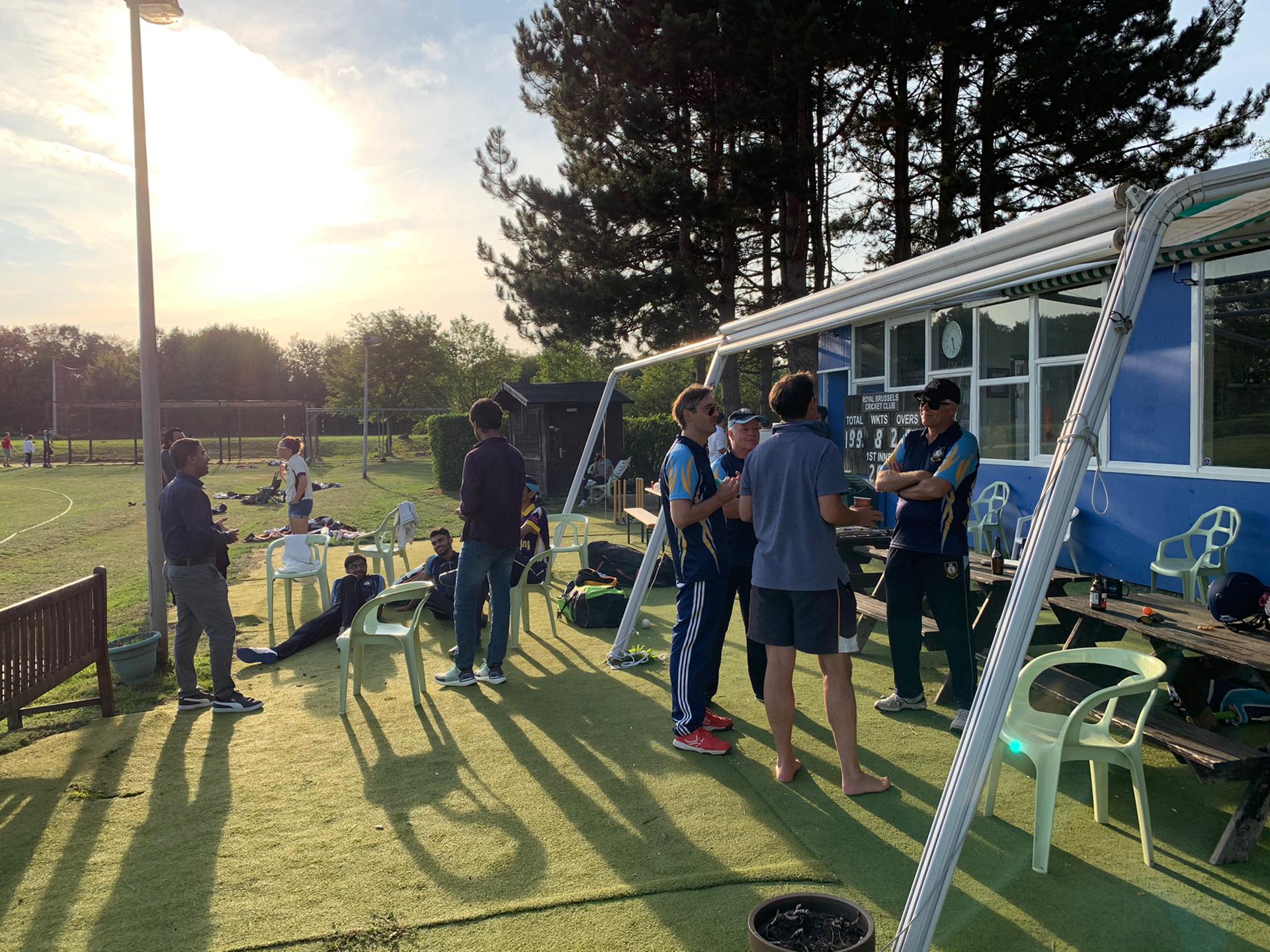
How international is the club?
Kim: There are people from all over the world in the younger colt teams. As we pointed out in the booklet, people come from Canada, Fiji, and the African and Asian continents.
Chris: We have a really international set of people. You’ve got your traditional cricket playing countries like UK, India, Pakistan, Australia and South Africa, but we also have players from further afield, as well as some good ex-professional players that improve the standard and give a real boost to the club.
Describe your outreach work with refugees?
Chris: We’ve worked quite extensively with the Afghani refugee community over the past four or five years. Afghanistan is a cricket passionate nation and there’s lots of Afghanis seeking asylum who are residing in integration centres close to the club. The relationship we’ve developed with them is to some extent down to the hard work of the centre managers and the refugees’ legal guardians. We have a fair number in the youth teams and we also have three or four who have graduated into the men’s team and are playing regular competitive cricket.
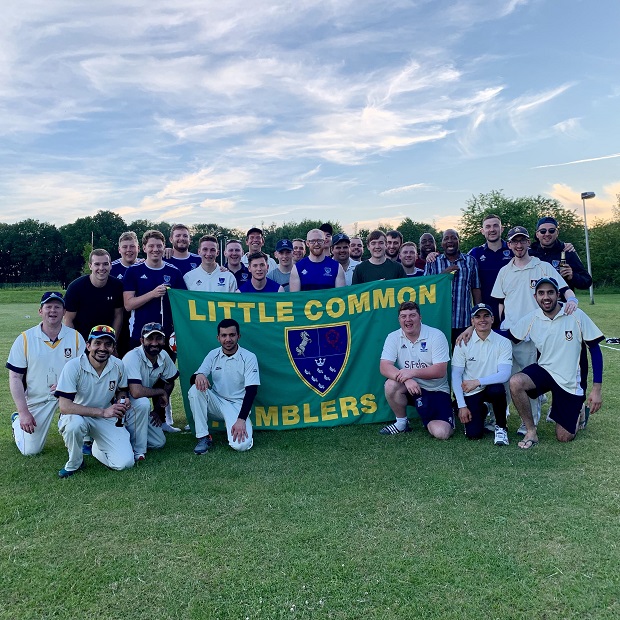
Are you always on the look-out for new players?
Chris: Cricket and sports in general in Belgium are particularly expat-centric so there’s something of a transient nature to the club. In order to keep it healthy and vibrant, we’re always looking for new members. We try to be as welcoming and open as possible to people who want to join, whatever their nationality, ethnic background or gender. The club ethos is for as many people as possible to experience cricket and experience our lovely location. It’s a truly beautiful spot in the Belgian countryside and we’re lucky to be custodians of it.
Tell me about the club booklet published this summer?
Kim: It was originally an idea by our youth development officer Dave Herrington. We decided to bring out a booklet primarily for the colts so they could log their statistics this summer, but I thought we should tell them a bit more about the club. We’re thinking of putting one out at the end of the year and hopefully do it every year.
Chris: This initiative by Kim and Dave shows the spirit of the club and it’s really brought a sense of community to the club as well as a sense of history that was always there, but not recorded. When it’s handed out to the juniors, you can see they really enjoy the content. There are also forewords from the various captains.
What’s the schedule for training sessions and matches?
Chris: There’s training for the women’s team on Wednesday evenings, the men’s team on Thursday evenings. We offer cricket in short format on Tuesday and Friday evenings from May to mid-August when light allows. There’s league cricket and international and touring matches at weekends. The juniors train on Sunday mornings and have regular games on weekend mornings. The aim is to have a mix of social and competitive cricket. One important initiative is a series of summer stages for kids.
Kim: We started summer stages during Covid and have already organised two this season, with another planned for the last week of August. We intend to repeat these stages next Easter and next summer. They’ve been a great success.
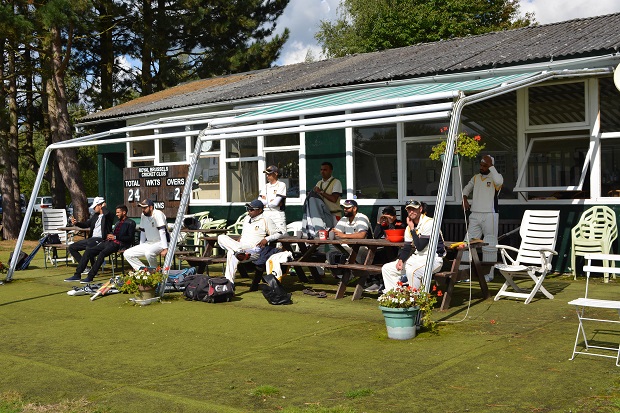
A final word on the club’s activities?
Chris: We try and play our part in the international community. We host games between embassies, such as the British, Australian and Pakistan embassies and we have good links with the Brussels British Community Association (BBCA). We’ve hosted their summer party for the last three years with the exception of 2020. And we try and play our part in the development of the international game, which is an important facet of the club’s activities. This summer we hosted an international T20 tournament between Belgium and Austria, which Belgium won.
Kim: I’d like to say that the colts team and the club as a whole have flourished under Chris’s chairmanship.











